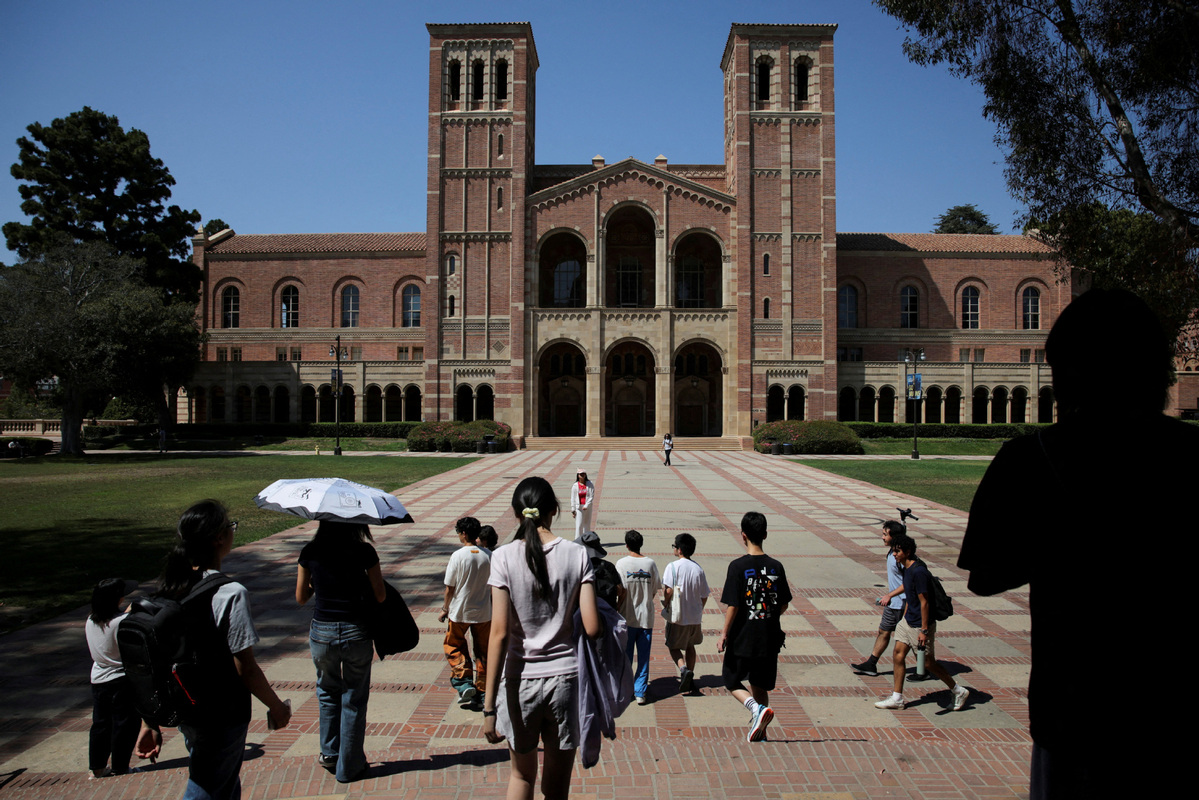
California Governor Gavin Newsom has vowed to strip state funding from any California university that agrees to implement the Donald Trump administration's new "Compact for Academic Excellence in Higher Education". The move has reignited a fierce political battle over academic freedom, international student enrollment and federal control over higher education.
The controversial compact, unveiled by the White House last week, offers colleges favorable access to federal grants and new funding streams if they agree to a list of demands aligned with Trump's conservative agenda. Among these are caps on international student enrollment, bans on race and gender considerations in admissions and hiring, reintroduction of standardized testing requirements, and enforcement of the administration's definition of gender on campus facilities and athletics.
READ MORE: Harvard Kennedy School makes contingency plan for international students
The compact also mandates that schools freeze tuition for five years, restrict certain liberal arts programs, and "transform or abolish institutional units that purposefully punish, belittle, and even spark violence against conservative ideas". "Institutions of higher education are free to develop models and values other than those below, if the institution elects to forgo federal benefits," the compact states.
Newsom, a Democrat, issued a strong warning on Thursday: "If any California university signs this radical agreement, they'll lose billions in state funding — including Cal Grants — instantly."
Newsom characterized the compact as "nothing short of a hostile takeover of America's universities".
The governor's remarks came less than a day after the White House sent letters to nine major universities, including the University of Southern California, the only California institution in the initial round.
Though the USC is a private institution and does not receive direct state funding, its students benefit significantly from California's state financial aid programs. In addition, international students — many from China and India — form a key part of USC's revenue model. The Trump compact would limit international enrollment to just 15 percent of the undergraduate population, with no more than 5 percent from a single country, which would significantly impact the USC.
USC officials have not committed to signing or rejecting the compact. A university spokesperson stated they are "reviewing the administration's letter".
Reshaping policy
Observers see the compact as the latest move in the administration's strategy of using federal funding as leverage to reshape university policy. Over the past year, multiple elite institutions, including Columbia, Brown and Harvard, have faced federal investigations and funding constraints over how they handled campus protests and allegations of antisemitism. In one prior case, the University of California, Los Angeles, was penalized with $1.2 billion in fines and loss of grant access, though a federal judge later ordered the restoration of many suspended health and science grants.
Supporters of the compact argue it will rein in tuition hikes and restore balance to campuses they claim have become hostile to conservative voices. A White House spokesperson said Newsom was "opposing efforts to cap wild tuition hikes and to protect free speech", accusing him of mismanaging California's education system.
ALSO READ: United States' 'Big, Beautiful Bill' poised to affect millions of lives
However, California legislators dismissed the federal overture as politically motivated. "No self-respecting university should sign on to this proposed compact," said Al Muratsuchi, chair of the Assembly Education Committee.
While only nine universities were included in the first round, a White House official told media outlets more schools could soon receive the compact. Public universities in California, including the University of California and California State University systems, are under federal civil rights investigations, making them vulnerable to similar pressures. At the same time, some institutions in conservative-led states have welcomed the offer. The University of Texas Board of Regents described itself as "honored" to be included, calling the compact an "opportunity" to align with the administration's goals.
Agencies contributed to this story.
Contact the writers at renali@chinadailyusa.com


